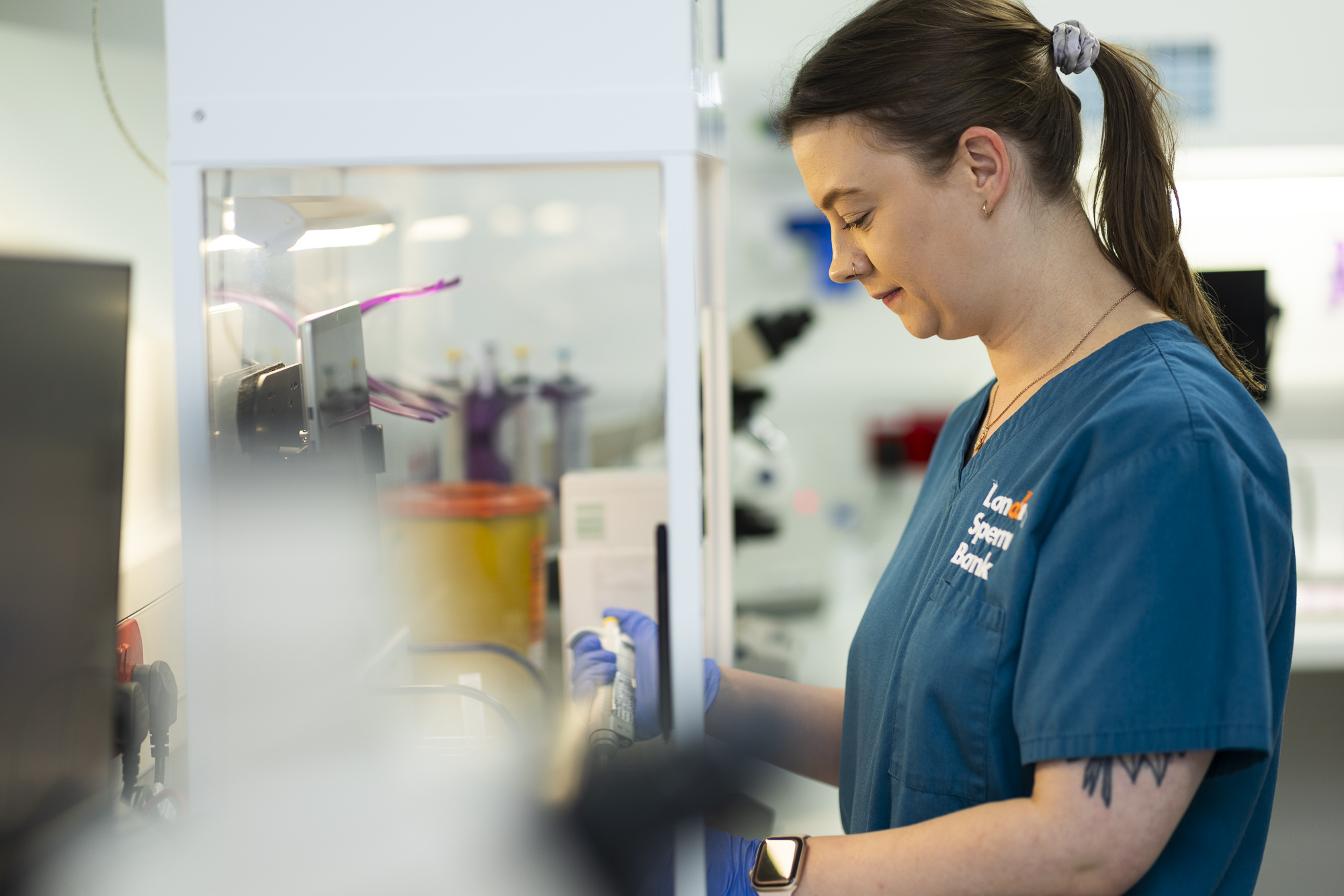 Blog
Blog
Can cycling affect male fertility?

If you’re a man who cycles regularly, you might have wondered: can cycling affect fertility? The answer isn’t completely straightforward, but recent studies do suggest there can be an impact — especially for men who cycle frequently and for long durations.
At London Sperm Bank, we want to provide clear, balanced information to help you understand how cycling might influence your sperm quality, and what you can do if you’re concerned.
What do the studies say?
A study from the University of Cordoba Medical School in Spain examined 15 triathletes, averaging 33 years old, comparing their sperm quality with their training habits. The researchers found that cycling — rather than running or swimming — was linked to poorer sperm health. Notably, those covering more than 186 miles per week on their bikes had less than 4% of sperm with normal shape (morphology).
Similarly, research from Boston University analysed sperm samples from over 2,200 men attending fertility clinics. The study found that men who cycled more than five hours a week were twice as likely to have lower sperm counts and reduced sperm motility compared to those who did no exercise or exercised in other ways. Interestingly, no difference was found between men who did general exercise and those who did not exercise at all.
What might be causing the effect?
Experts believe the link between cycling and fertility concerns relates mainly to:
- Increased scrotal temperature: Prolonged sitting on a bike saddle can raise the temperature around the testes, which may negatively affect sperm production.
- Scrotal trauma and pressure: Constant pressure on the perineal area (between the anus and the scrotum) can lead to nerve compression and impact erectile function — indirectly influencing fertility.
What does this mean for men who cycle?
It’s important to note that the Boston University study was conducted with men already attending fertility clinics, so their results might not apply to all cyclists. More extensive research is needed to confirm these findings across a broader population.
If you cycle regularly and are considering a sperm analysis at a clinic like London Sperm Bank, don’t panic if your initial results aren’t perfect. Cycling is one factor among many that can affect sperm health. Lifestyle choices such as maintaining a healthy diet, reducing alcohol consumption, quitting smoking, and practising safe sex to avoid infections play crucial roles in fertility.
How can you protect your fertility while cycling?
If you enjoy cycling and want to minimise any potential impact on your fertility, consider the following:
- Keep your rides moderate in intensity and duration — avoid excessive hours at high intensity.
- Invest in a well-fitted, ergonomically designed saddle that reduces pressure on sensitive areas.
- Take regular breaks during longer rides to relieve pressure and allow cooling.
- Maintain overall good health with balanced nutrition and lifestyle habits.
- If concerned, talk to a healthcare professional or fertility specialist for personalised advice.
Final thoughts
While some research indicates that prolonged, intense cycling may affect sperm quality — particularly sperm concentration, motility, and morphology — the evidence isn’t definitive. Moderate cycling is generally safe and offers significant health benefits that can support overall fertility.
If you’re thinking about sperm donation or want to check your fertility, London Sperm Bank offers confidential sperm analysis and expert advice to help you take the next step.





